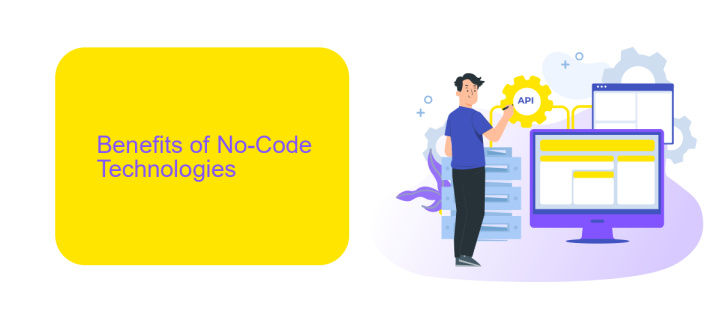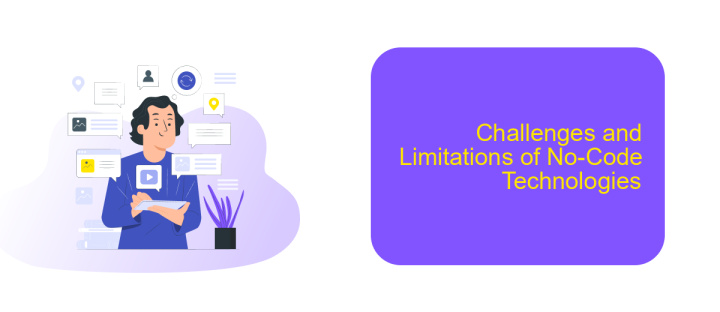No-Code Technologies
No-code technologies are revolutionizing the way businesses and individuals approach software development. By enabling users to create applications and automate processes without writing a single line of code, these platforms democratize tech innovation. This article explores the benefits, challenges, and future potential of no-code tools, highlighting how they empower non-technical users to bring their ideas to life.
Introduction
No-Code technologies have revolutionized the way businesses and individuals develop applications and automate workflows. By eliminating the need for traditional coding skills, these platforms empower users to create complex solutions through intuitive, visual interfaces. This democratization of technology has led to increased innovation and efficiency across various industries.
- Ease of Use: No-Code platforms are designed to be user-friendly, enabling even those with no technical background to build and deploy applications.
- Cost-Effective: By reducing the need for specialized developers, businesses can save on costs associated with custom software development.
- Rapid Deployment: Projects that once took months can now be completed in a matter of days, thanks to pre-built templates and drag-and-drop functionalities.
One notable example of a No-Code integration tool is ApiX-Drive. This service allows users to connect various applications and automate data transfer without writing a single line of code. By leveraging such tools, businesses can streamline operations, improve productivity, and focus on core activities. As No-Code technologies continue to evolve, their impact on the digital landscape will only grow stronger.
Benefits of No-Code Technologies

No-code technologies offer significant benefits, particularly in terms of accessibility and speed. These platforms empower individuals without technical backgrounds to create applications, websites, and automated workflows. By eliminating the need for traditional coding, no-code tools democratize software development, allowing more people to bring their ideas to life. This accelerates innovation and reduces dependency on specialized IT teams, making it easier for businesses to adapt and respond to market demands swiftly.
Another key advantage is the ability to integrate various services seamlessly. Tools like ApiX-Drive facilitate the connection between different applications, enabling automated data transfer and synchronization. This integration capability eliminates manual processes, reduces errors, and enhances overall efficiency. No-code platforms also offer scalability and flexibility, allowing businesses to start small and expand their solutions as needed. Overall, no-code technologies provide a cost-effective and user-friendly approach to digital transformation.
Use Cases for No-Code Technologies

No-code technologies have revolutionized various industries by enabling users to create applications and automate workflows without any programming skills. These tools have democratized technology, making it accessible to a broader audience.
Here are some common use cases for no-code technologies:
- Website Development: Platforms like Webflow and Wix allow users to design and launch professional websites without writing a single line of code.
- Workflow Automation: Tools such as Zapier and ApiX-Drive enable users to automate repetitive tasks and integrate various applications seamlessly.
- Mobile App Creation: Services like Adalo and Glide help users build mobile applications quickly and efficiently.
- Data Management: No-code databases like Airtable and Notion allow users to organize and manage data without complex database queries.
- Custom Forms and Surveys: Platforms like Typeform and Jotform enable the creation of interactive forms and surveys with ease.
By leveraging no-code technologies, businesses can significantly reduce development time and costs, allowing them to focus on innovation and growth. These tools are especially beneficial for startups and small businesses that may lack the resources to hire dedicated development teams.
Challenges and Limitations of No-Code Technologies

No-code technologies, while revolutionary, come with their own set of challenges and limitations. One of the primary concerns is scalability. As businesses grow, the initial no-code solutions may not be able to handle the increased complexity and volume of operations, necessitating a shift to more robust, custom-coded solutions.
Another significant challenge is the lack of flexibility. No-code platforms often provide a limited set of functionalities, which can be restrictive for businesses with unique or highly specialized needs. This inflexibility can hinder innovation and adaptation to changing market conditions.
- Scalability issues as businesses expand
- Limited flexibility in functionalities
- Dependency on platform-specific features
- Potential security vulnerabilities
Moreover, integrating no-code solutions with existing systems can be complex. While services like ApiX-Drive offer seamless integration capabilities, not all platforms are compatible, leading to potential data silos and workflow disruptions. Therefore, while no-code technologies democratize software development, they are not a one-size-fits-all solution and require careful consideration of their limitations.
- Automate the work of an online store or landing
- Empower through integration
- Don't spend money on programmers and integrators
- Save time by automating routine tasks
Future of No-Code Technologies
The future of No-Code technologies holds immense potential for transforming how businesses and individuals approach software development. As these platforms continue to evolve, they will become even more powerful and accessible, allowing users with little to no technical expertise to create complex applications and automate workflows. This democratization of technology will lead to increased innovation, as more people can bring their unique ideas to life without the need for extensive coding knowledge.
One significant advancement in this field is the integration capabilities provided by services like ApiX-Drive. These platforms enable seamless connections between various applications and services, allowing for automated data transfer and synchronization. As No-Code technologies advance, we can expect more sophisticated integration options, making it easier for users to build interconnected systems that enhance productivity and efficiency. The future of No-Code is bright, with endless possibilities for customization and automation, driving forward a new era of digital transformation.
FAQ
What are No-Code Technologies?
Who can benefit from using No-Code Technologies?
Can No-Code Technologies be used for complex projects?
How do No-Code Technologies handle integrations with other software?
Are No-Code Technologies secure and scalable?
Time is the most valuable resource for business today. Almost half of it is wasted on routine tasks. Your employees are constantly forced to perform monotonous tasks that are difficult to classify as important and specialized. You can leave everything as it is by hiring additional employees, or you can automate most of the business processes using the ApiX-Drive online connector to get rid of unnecessary time and money expenses once and for all. The choice is yours!


